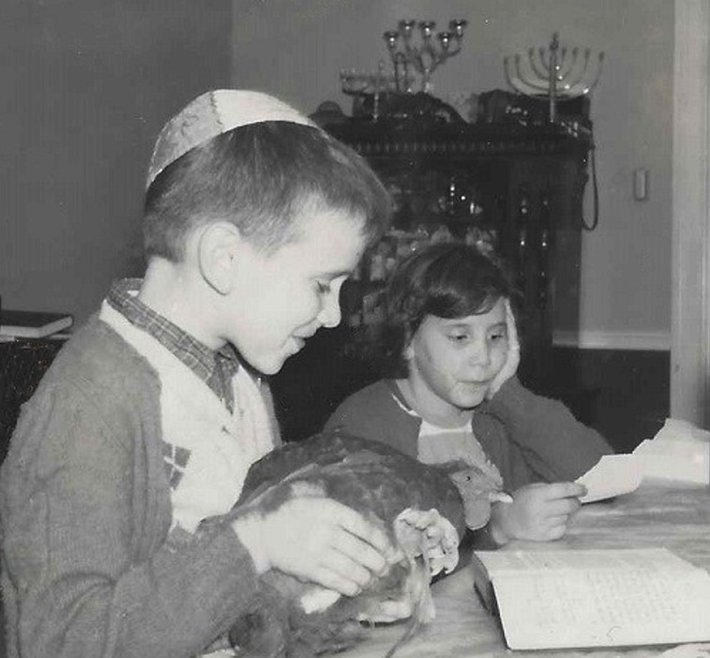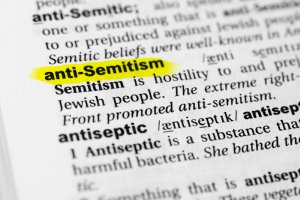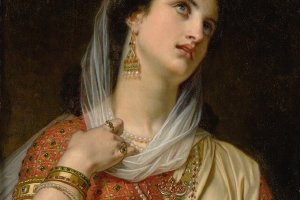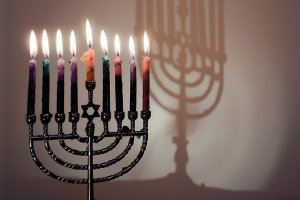This blog recounts how one moment in a Jewish man’s childhood—a simple act of repentance on the Jewish High Holy Days—changed his outlook, his perspective and his life. What would happen if we all took that extra look, that one additional breath and saw how each of our actions and inactions affects the whole world?
I was raised Orthodox Jewish in a loving Jewish family. Orthodox Judaism is quite different for a child than for a grownup. As a little boy I saw everything through the filter of “Is this fun?” or “If not, how can I make it fun?”

No ice cream after a meat meal for six hours due to the injunction against mixing meat and dairy is “no fun.” No baseball or buying comic books on Saturday, the Jewish Sabbath, is likewise no fun. No TV or radio from sunset on Friday to nightfall on Saturday due to the forbidding of switching power on or off on a day where everything is to be left at rest, also no fun.
So as the weather chilled into autumn and the Jewish High Holy Days of Rosh Hashanah and Yom Kippur were once more upon us, those occasions were far from solemn for me because there were ample opportunities for fun. First, there was Tashlich (literally “casting out”) where we would march to the nearest stream and throw pebbles into the water as a figurative casting out of our sins and mistakes over the past year. Though the symbolism was lost on me as a 6-year-old, the fun was not. Then, as Yom Kippur eve neared, there was Kapparot (literally “atonements”) which brought even more fun. According to the custom brought over from the old country, my older siblings and I were each given a chicken, and while reciting the prayer we would twirl the chicken around our heads and thus symbolically transfer our transgressions into the bird. Again, though the meaning of the rite didn’t really penetrate, the cool thing of taking a chicken and rotating it around my head—something I’d certainly get punished for any other day—was something to look forward to.
“Why all the long faces?” I’d wonder, looking at my elders.
The solemnity of eradicating hatred and sin from the world was lost on me at that age.
Then a classmate, Miriam (not her real name), changed my life. She came up to me one September day and said, “I want you to know I’m sorry.” She then read me a list of all the bad and inappropriate things she’d done to me the preceding year. The time she kicked me in the ankle. That other time when she called me a name. Another time when she said something mean about me to her best friend.
I was shocked. Not at the bad things she did—I did that stuff to people all the time—but that she was seriously asking my forgiveness for it. I didn’t particularly like Miriam. I didn’t consider her a friend. But somehow, after her confessions, I felt differently toward her. She had trusted me enough to confide her misdeeds to me. She was treating me as a friend, and mysteriously, I now felt the same way toward her. I said, “Of course, I forgive you, but didn’t you uh already do Tashlich and Kapparot?”
“That stuff is between me and God. This stuff is between you and me. God can’t forgive me for what I’ve done to you. Only you can. So thank you. You’ve helped me and you’ve helped the world.”
As she left, she turned and added, “Time for us to grow up.” And as I watched her go to another child and read another list out loud, I couldn’t deny that I felt better about her and better about the world. It was the first time anyone had ever confessed anything to me, and the first time I had ever forgiven anyone. Then it hit me: Miriam and I, in our own small way, right then and there, by extinguishing senseless ill will between us—no matter how small—had somehow struck a blow for friendship and understanding. And if two people could do that just with communication and trust, imagine what two groups could do, or two nations, or a whole world.
I was 10 and I had grown up.
From that point on, the days and weeks leading up to and following the High Holy Days of Rosh Hashanah and Yom Kippur became both a solemn and joyous season for me. Solemn because of the introspection and soul-searching it requires. Joyous because of the relief and atonement that came from being unburdened of acts I regretted.
Can people learn this simple formula for friendship? That Trust plus Communication equals Friendship? Can nations realize that accountability for the fruits of hate and suspicion of others will help the world?
It starts, not with the nation or the group, but with the individual, and possibly it is the children who will ultimately teach us all to grow up.
_______________
From its beginnings, the Church of Scientology has recognized that freedom of religion is a fundamental human right. In a world where conflicts are often traceable to intolerance of others’ religious beliefs and practices, the Church has, for more than 50 years, made the preservation of religious liberty an overriding concern.
The Church publishes this blog to help create a better understanding of the freedom of religion and belief and provide news on religious freedom and issues affecting this freedom around the world.
The Founder of the Scientology religion is L. Ron Hubbard and Mr. David Miscavige is the religion’s ecclesiastical leader.
For more information, visit the Scientology website or Scientology Network.


